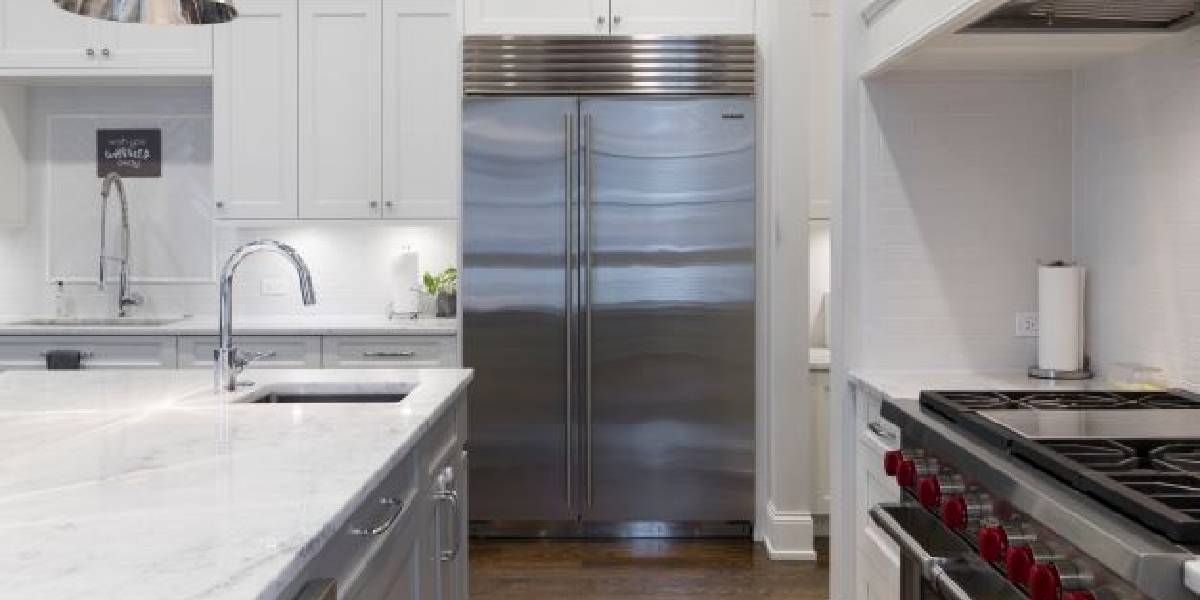Refrigerators are essential appliances in most homes, and when they break down, it can be a huge inconvenience. Knowing how to diagnose and repair common refrigerator problems can save you time and money. In this article, we’ll go over some of the most common refrigerator repairs and how to diagnose them.
The refrigerator not cooling properly
When a refrigerator is not cooling properly, it can be caused by a variety of factors. One of the most common causes is a malfunctioning thermostat. The thermostat regulates the temperature inside the refrigerator and if it is not working correctly, it can cause the refrigerator to not cool properly.
Another common cause of poor cooling is a dirty condenser coil. Over time, the condenser coil can become clogged with dirt and dust, which reduces its ability to cool the refrigerant.
To diagnose this problem, start by checking the thermostat. If it is set correctly and the refrigerator is still not cooling properly, clean the condenser coil. This can be done by unplugging the refrigerator, locating the coil, and using a soft-bristled brush to remove any dirt or dust.
The refrigerator making strange noises
If your refrigerator is making strange noises, it can be a sign of a serious problem. The most common cause of refrigerator noises is a malfunctioning fan. The fan is responsible for circulating air throughout the refrigerator and if it is not working correctly, it can cause the refrigerator to make strange noises.
Another cause of refrigerator noises is a faulty compressor. The compressor is responsible for compressing the refrigerant and if it is not working correctly, it can cause the refrigerator to make loud unusual noises.
To diagnose this problem, start by unplugging the refrigerator and locating the fan and compressor. Check for any visible signs of damage or wear and tear. If there are no visible signs of damage, plug the refrigerator back in and listen for the source of the noise. If it is the fan or compressor, they will need to be replaced.
The refrigerator is leaking water
If your refrigerator is leaking water, it can be caused by a variety of factors. One of the most common causes is a clogged or frozen defrost drain. The defrost drain is responsible for draining water from the freezer and if it becomes clogged or frozen, it can cause water to leak from the refrigerator.
Another cause of refrigerator leaks is a faulty water inlet valve. The water inlet valve is responsible for controlling the flow of water to the ice maker and if it is not working correctly, it can cause water to leak from the refrigerator.
To diagnose this problem, start by locating the defrost drain and checking for any visible signs of blockage or damage. If the drain is clogged or frozen, use a hairdryer to thaw the ice and then clean the drain with a pipe cleaner. If the water inlet valve is the problem, it will need to be replaced.
The refrigerator door is not closing properly
If your refrigerator door is not closing properly, it can cause a variety of problems. One of the most common causes is a faulty door gasket. The door gasket is responsible for creating a seal between the refrigerator and the outside environment, and if it is not working correctly, it can cause the door to not close properly.
Another cause of a door not closing properly is a misaligned door hinge. The hinge is responsible for keeping the door in place, and if it is not aligned correctly, it can cause the door to not close properly.
To diagnose this problem, start by inspecting the door gasket for any visible signs of damage or wear and tear. If the gasket is damaged, it will need to be replaced. If the gasket appears to be in good condition, check the door hinge for any visible signs of misalignment. If the hinge is misaligned, it may need to be adjusted or replaced.
The ice maker is not working
If your refrigerator’s ice maker is not working, it can be a frustrating problem to deal with. One of the most common causes of this problem is a faulty water inlet valve. The water inlet valve is responsible for controlling the flow of water to the ice maker, and if it is not working correctly, it can cause the ice maker to stop working.
Another cause of an ice maker not working is a clogged or frozen water supply line. The water supply line is responsible for delivering water to the ice maker, and if it becomes clogged or frozen, it can cause the ice maker to stop working.
To diagnose this problem, start by checking the water inlet valve for any visible signs of damage or wear and tear. If the valve appears to be in good condition, check the water supply line for any visible signs of blockage or damage. If the supply line is clogged or frozen, use a hairdryer to thaw the ice and then clean the line with a pipe cleaner.
Frequently Asked Questions (FAQs)
Q: Can I fix my refrigerator myself?
A: It depends on the problem. Some problems, such as cleaning the condenser coil or replacing a door gasket, can be done by a homeowner with some basic tools and knowledge. However, for more complicated problems, it is best to hire a professional appliance repair service.
Q: How often should I clean the condenser coil?
A: The condenser coil should be cleaned at least once a year to maintain optimal performance.
Q: How do I know if my compressor is faulty?
A: If your refrigerator is making loud, unusual noises, it may be a sign of a faulty compressor. A professional appliance repair service can diagnose and repair this problem.
Q: Can a clogged defrost drain cause other problems with my refrigerator?
A: Yes, a clogged defrost drain can cause water to leak from the refrigerator and can also cause ice to build up in the freezer.
Q: How often should I replace my refrigerator’s water filter?
A: It is recommended to replace the water filter every 6 months to maintain water quality and prevent clogs.
A malfunctioning refrigerator can be a frustrating problem to deal with, but by knowing the most common problems and their solutions, you can diagnose and fix many issues yourself. For more complicated problems or for those who are not comfortable doing repairs themselves, it is best to hire a professional appliance repair service. Our service offers fast and reliable repairs for all types of refrigerators, and we have a team of experienced technicians ready to help. Don’t let a broken refrigerator ruin your day – contact us today for all of your appliance repair needs.



